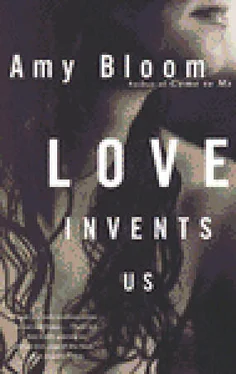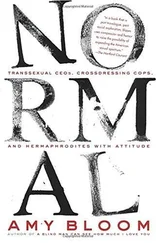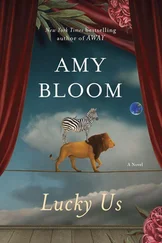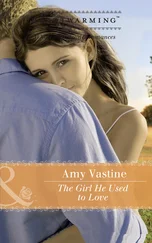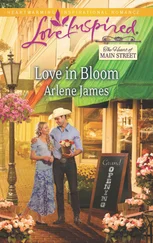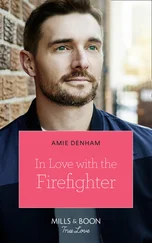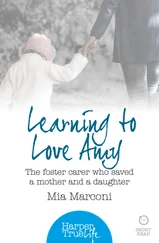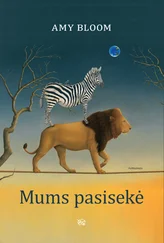The sky is the bright unchanging dusk of summer night; the tulip trees darken and fill until suddenly there is no light at all coming through them. We have to go in, both of us as reluctant as Max, as if there are no mosquitoes, as if tomorrow will be no good, as if this, this handspring, the one he can’t do in the velvety dark, is the one that must be done tonight.
The porch light sends Max’s shadow across Huddie’s light grey pants and Huddie’s across my porch steps, onto my feet, and I think, It will be all right if I die tonight. After I touch him.
I hand Huddie a glass of cheap wine and direct him to a quiet corner. While the kitchen is briefly under siege, I am the commander in chief. I hold on to the last two inches of Max’s T-shirt and clean his ears and his neck, wiping off the three dripping circles of boy-colored stucco beading his lily throat. My shoulder’s pressing the phone to my ear so I can promise brownies for the Great Gator bake sale. (Great Gator is the mascot of Max’s elementary school, and his snarky, omnivorous green presence is felt almost every week, since I in fact moved here, to this nothing-special house I can barely afford, because the school takes its mascot and its honor classes and its after-school program so seriously. Yes, two trays of brownies, and don’t make me mad by explaining that the kids prefer homemade.) I shake zucchini, peppers and garlic in my oldest, favorite pan, so old scorch marks tiger-stripe the original fifties-kitchen yellow. I know how I look, moving; around the kitchen in double time. It impresses and intimidates men who want to be married. Also young single women. Married men, with children (who show up periodically with bottles of wine when our children have all gone to bed), don’t care for it much, since they see it at home all the time. It must be as charming as leg hairs in the sink. And other mothers, the few who have been in my home (a six-week friendship between Max and the boy across the street; the neighborhood cancer drive; the new neighbor), don’t watch, don’t think about it, they don’t even put down their wineglasses as they set the table for me. They have all they can stand of their own necessary, gratifying agitation, whirling through their own kitchens like dervishes, scattering silverware and instructions and things to be defrosted and things to be frozen, feeling absolutely necessary to every movement and every living thing.
* * *
Huddie finishes his glass, a thin, sugary white, and wishes again that he’d brought decent wine instead of those irises, now bending in half over the jars she’s jammed them into. He puts a splinter of raw zucchini in his mouth and thinks of all the great meals he’s made, all the hot, oily bits, melting disks of fat and sugar he’s needed, to fill the space this short-tempered, weary woman left in him. Reaching for a fallen bottle of oregano, Elizabeth looks for a moment like June’s white twin. Muscular women, one plush layer over a wide back and hard legs striding until the last march. Bobcat wrestlers, point guards, piano-moving women. Stand in their way and be moved, fool. Elizabeth straightens up. He has misremembered. She has five inches on June and none of her broad curves. But her girl-arrow shape widens now to a protective, unshakable stance just like June’s, what love light there is shines only on their children’s faces. Except something else crosses Elizabeth’s face, opening and closing like a night rose. Her young face was two curved blades pointing to her square chin. Now there are soft velvet pleats along the jaw, a row of faint, sweet ridges he would like to touch as she lowers her head to check the vegetables. And as she bends over awkwardly to get a roasting pan for the little pink potatoes, not the practiced kneel of stewardesses and office ladies, all of whom know that men are always looking, Elizabeth bends her knees only a little and her ass juts out, hips low and wide, her waist calling for his hands, her ass pressing toward him in those old jeans with their white, pulling seams, and Huddie thinks that it was for this that he has lived so long. Lead me on to that light, Lord, lead me home.
* * *
“Sylvan,” Max says after dinner, looking out at the yard, his legs stretched out from the couch to the coffee table, like Huddie’s.
Huddie says nothing. Don’t mock my child. Do not say “Sylvan?” like it’s a sissy ten-dollar word. Do not say “You mean green?” like no real boy would say anything else. Say “You are a faggot, Max.” And then I’ll have to kill you, and my grieving, delicate boy will be shuffled from foster home to foster home, bullied by no-neck monsters, made to wear polyester clothes that will so madden him he’ll run away at the age of fourteen — I can see him with blond down on his cheeks, little gosling tufts — and find himself go-go dancing in some big-city Combat Zone, stripping down to a sequined, bulging G-string to the strains of “Over the Rainbow” for sticky dollar bills from the hands of vile middle-aged men.
“Yeah, it is,” Horace says.
“I love that,” Max says.
“Yeah.”
Huddie and Max sit on Max’s bed. This is the beautiful room in my house. I held his little biscuit feet in my hands, in this room. And beneath those feet, my hands, which I had always admired for their smoothness, were as worn and rough as cedar bark. Ivory angel feet, with opal nails and satin soles. And my hands became his steps, my body his playground, and my whole past was dissolved into his immediate, inescapable now .
Max’s bedroom walls are the elegant Parisian yellow my mother would have chosen, and the ivy stencils from floor to ceiling are also her kind of thing. It was my last unnecessary effort. We came home to this house and three barely furnished rooms and nine drifting, cocooned, and expensive months together. We lived in baby time, where if you’ve cleaned up the spilled talcum and gotten to and from the grocery store, you’ve had a day . I had no other life than Maxie’s, and I could neither remember nor imagine one. A leisurely shower elated me. Tiny red sneakers on sale with matching red and white teddy-bear print socks thrilled me. Burned toast and puddles of zwieback filled the kitchen and I swept it all into the garbage whenever I had the energy. I saw people only as they saw Max, and so I was inclined to love them. My father sent several thoughtful but not excessive checks and a stuffed pink panda, so gaudy and lush I could only assume his new wife had picked it out. He did not send a ticket to Oregon, and I thought, He’s seventy, he’s got a fifty-year-old wife with two college-age kids, her elderly, forgetful mother lives with them, fair enough. Some people are your family no matter when you find them, and some people are not, even if you are laid, still wet and crumpled, in their arms. Sol had found the right family, finally, including a stepdaughter who screamed good-naturedly at him in the background, “Sol, Jesus fucking Christ, I’m waiting for a call, you know. Tell her Max is gorgeous, send her a crazy big check, and lemme talk to Kenny before the concert’s sold out.” I thought that when she dropped out of college and got tired of Kenny, I might persuade her to babysit Max. And me.
The apostle spoons went on the shelf over the changing table, and Max had every bath in the company of gospel greats. Greta found me and sent a painting of crows and snakes, which I put back in its crate and hid in the attic, beneath zipperless luggage and winter clothes. My mother was dead but showed up in dreams so hilarious and realistic I had to believe that her soul had migrated to my subconscious, from which it was now directing late-night cinema. In my dreams, we discussed breast and bottle feeding, the right age for solids, wheat allergies, and the ways in which Max was clearly superior to the little white lumps we’d bubbled next to at the YMCA Tot Swim. We agreed on everything, and when I wavered in my own convictions, my mother, in the pale, pale lilac charmeuse evening dress she wore when I was nine, assembled experts from Anna Freud to Oscar Wilde to reassure me.
Читать дальше
